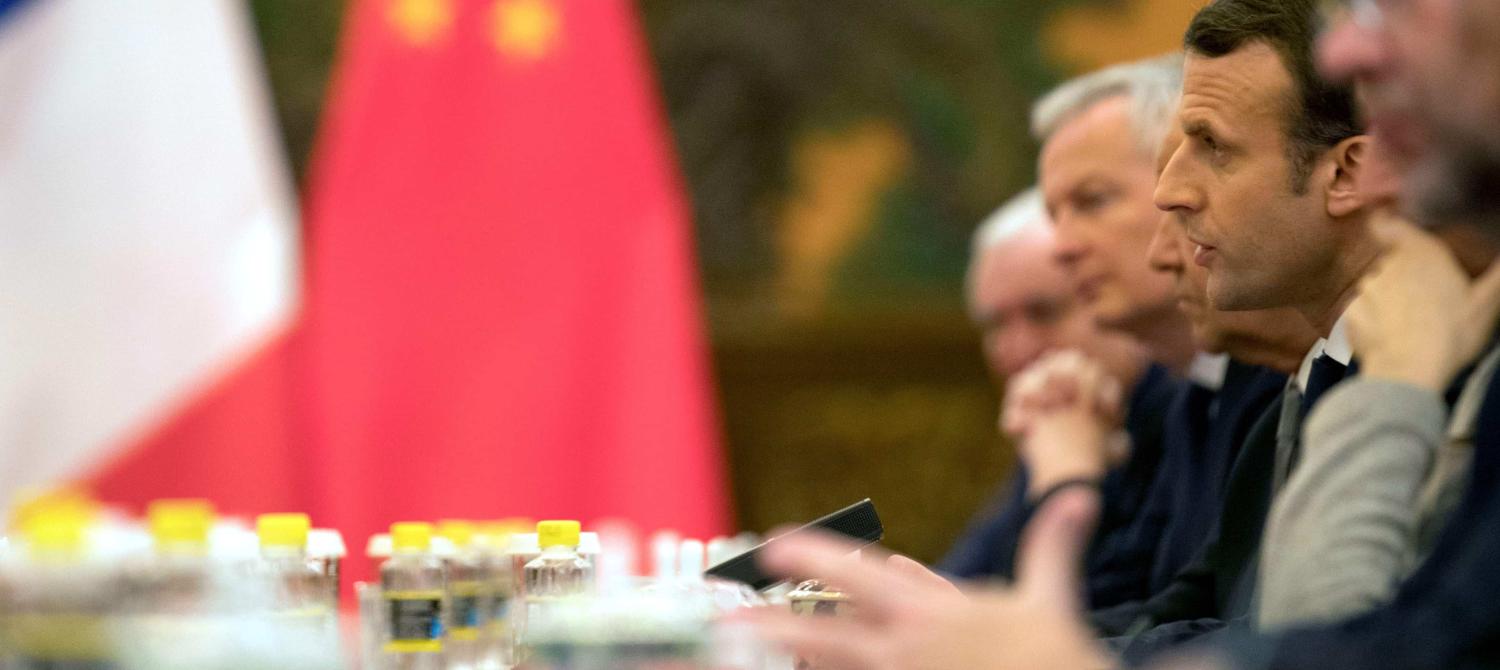During French President Emmanuel Macron's visit to China, which concluded last week, his choice to gift China's Xi Jinping with a horse was apparently prompted by Xi's words of admiration during a 2014 trip to Paris. On that visit, Xi was greeted by a guard of honour from the Garde Républicaine, France’s most prestigious mounted military unit. Normandy-born brown bay gelding Vésuve de Brekka, who trooped the French colours from 2012 to 2017, was flown to China in early January together with an instructing officer and a veterinarian.
While gifts between world leaders are usually determined by protocol officials, Vésuve de Brekka is said to have been personally selected by Macron: an 'exceptional gift for an exceptional visit'. The President has made no secret of his ambition to forge a deep partnership with the world's second-largest economy and rebalance the terms of France's trade with China, an effort in which Xi's good graces can only help. With Vésuve, he certainly succeeded in getting Xi's attention.
In May 2017 Macron was elected to the presidency at 39 years of age, which leaves him plenty of time to contemplate even higher ambitions in future, including, perhaps, a pan-European role for himself. With the British leaving the EU, and Germany's Angela Merkel weakened significantly, history might be on his side. Macron senses an opportunity for France to re-establish a leading role in international diplomacy. He campaigned on a decidedly pro-EU stance in the presidential elections; his credibility as a voice speaking for Europe is high and demands recognition by other world leaders.
One of Macron’s first initiatives as president was to invite Russia's Vladimir Putin to a grand reception after years of cold relations following the crisis in Ukraine. Shortly after, Macron persuaded US President Donald Trump to attend France's national military parade on Bastille Day, in what proved a rewarding visit. Winning over China's Xi is his next big step.
So far, Xi has been rather uncompromising in defending China's interests and asserting its position in the world. There is growing anxiety in Europe over the nature of his regime as well as his intentions to grant European companies fair access to the Chinese market. France runs a €30 billion trade deficit with China. Macron has signalled his intent to not only facilitate a number of high-profile deals but also shift the approach to trade in general.
One word from Macron's rebooting speech on bilateral relations summarises his quest: reciprocity. While he made a passionate plea for France to welcome Chinese investors, Macron clearly hopes that, in return for being allowed access to France's vineyards and infrastructure, China will lift its restrictions on foreign investment. Xi's response has been evasive. When promoting French products to China’s consumers and business community, Macron assumed the air of an eloquent salesman. He chose to relegate human rights to private talks, arguing that schooling China in public is never effective.
When Trump announced America's exit from the Paris Agreement in June 2017, Macron was quick to broadcast a message on social networks in English, asking world actors to join him in the fight to 'make our planet great again'. His charm offensive in China featured a repeat of the message, this time in Chinese, to propose a Sino–French partnership to tackle climate change.
On the Chinese side, expectations of this visit were high as well. Xi hopes to get France aboard the One Belt One Road initiative, which many Europeans perceive as a vaguely expansionist threat. Here again, Macron obliged by embracing the plan, urging French and European companies to seek a more active role in the movement. But he also used the opportunity to deliver a warning of his own: the routes, Macron said, cannot be unilateral, and the growth benefits of the initiative should be shared.
Macron's predecessors only found time for short trips to China. Macron promised to visit at least once a year, stayed for three days, and has gone out of his way to express gestures of personal friendship towards Xi. Much has been made by the French community in China about the surprising meaning of Macron's name as transliterated in Chinese: Ma-ke-long (马克龙), literally 'horse overcomes dragon'. No doubt they will keep a close eye on Vésuve's whereabouts.

